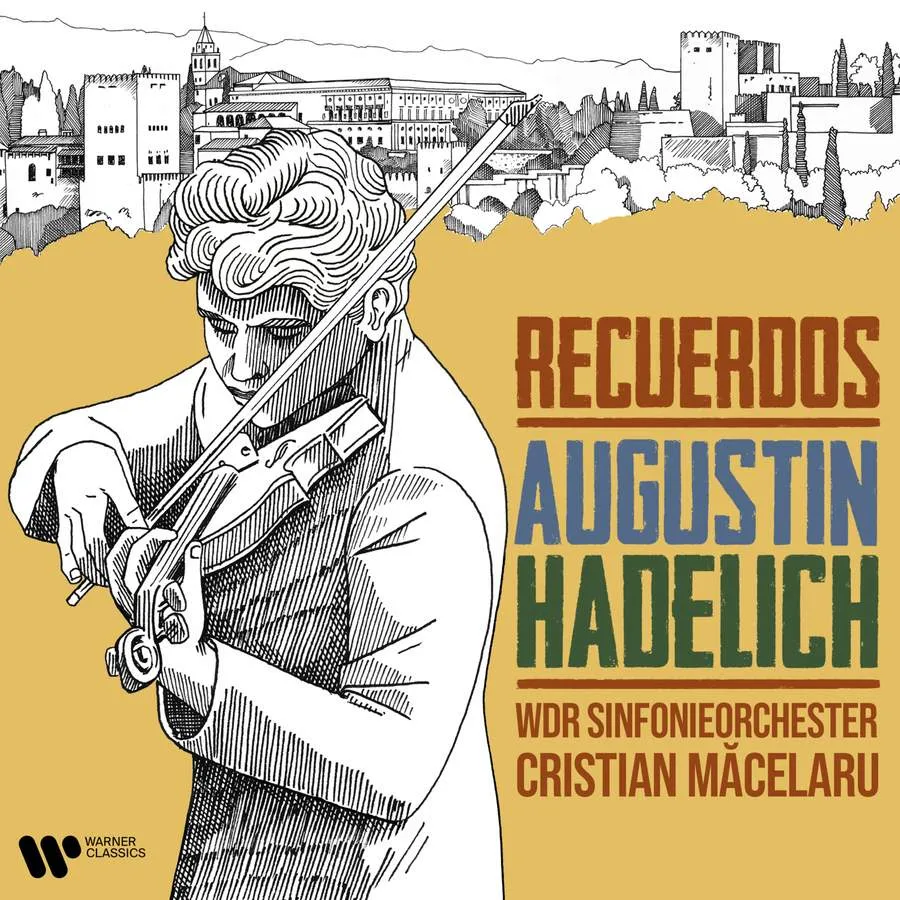
Recuerdos Britten: Violin Concerto in D minor; Prokofiev: Violin Concerto No. 2 in G minor; Saraste: Carmen Fantasy (after Bizet); Tárrega: Recuerdos de la Alhambra (arr. Ricci) Augustin Hadelich (violin); WDR Sinfonieorchester/Cristian Măcelaru Warner Classics 9029631076 79:55 mins
This album imaginatively couples two major violin concertos of the 1930s which relate to Spain in that troubled decade. These are framed by arrangements of more familiar views of Spain – Sarasate’s of numbers from Bizet’s Carmen and, as an encore, Ruggiero Ricci’s of Spanish Romantic composer Tárrega’s popular guitar piece.
In his booklet note, violinist Augustin Hadelich highlights the Britten – written in response to the Spanish Civil War and completed in 1939 – as the programme’s main work, with the Prokofiev (composed 1935) apparently a support act. Yet, perhaps precisely by not identifying so closely to the Prokofiev, Hadelich actually shows greater respect for that score. And because he makes much of the sweetness and sunlight of the first movement’s second theme, there’s a stronger than usual sense by the movement’s end that storm clouds have stealthily darkened the landscape. Likewise, the full blossoming of the slow movement’s lovely theme is a foil to the soloist’s subsequent ghostly arpeggios; and the sinister way in which the orchestra finally appropriates the soloist’s theme, the violinist reduced to playing the penny plain accompaniment, seems telling. With the finale, the soloist appears trapped in a Red Shoes-style dance they cannot escape.
Alas, Hadelich’s identification with Britten’s Concerto is such that it loses its character. Conductor Cristian Măcelaru does not help by starting at a speed much lower than Britten’s suggested metronome mark, making the music sound exhausted from the outset. The performance does pick up at the scherzo, but overall fails to compel attention as does, among many other fine alternatives, Janine Jansen’s magnificent account with Paavo Järvi (on Decca).
Daniel Jaffé
